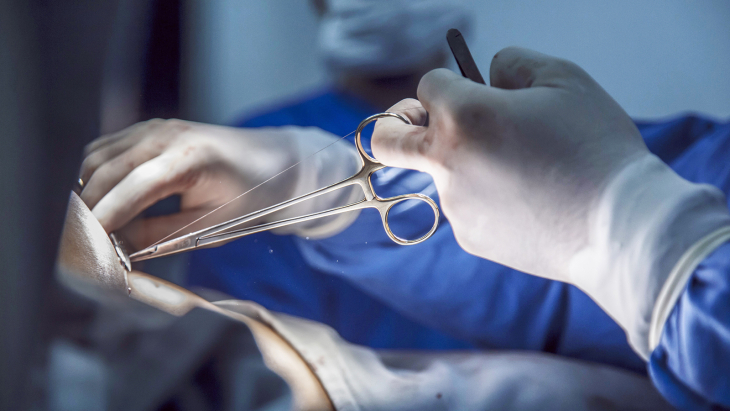
Location
Dates & Times
Contact
Do you have event related questions or need help with registration?
This workshop is designed for nurse practitioners in primary or urgent care, physician assistants, medical doctors, emergency medical services and students from all medical disciplines with limited exposure to suturing and who desire to be more knowledgeable in best practices and common suture and wound closure techniques.
The Basic Suturing and Wound Closure Workshop covers instrument basics such as suture types and selection, proper loading of the needle, wound assessment, local anesthesia, aftercare, and documentation. Participants will review simple interrupted, simple running, running locking sutures, as well as Steri-Strips, skin glue and staplers and removal. Through didactic sessions and demonstrations, participants will have the opportunity to demonstrate basic suturing and wound closure techniques on both animal tissue and simulation models. All supplies will be provided for the workshop. Enrollment is limited in order to optimize the learning experience.
The Advanced Suturing Workshop is designed for nurse practitioners, physician assistants, and medical doctors who are proficient in performing simple interrupted sutures and wish to build on their skills. This workshop will provide opportunity to practice: subcuticular running, horizontal mattress, corner stitch, triangular flaps, loss of tissue, elliptical incisions and punch biopsy closures. Participants will have the opportunity to practice advanced suture techniques on both animal tissue and simulation models. All supplies are provided for the workshop. Enrollment is limited in order to optimize the learning experience.
Regardless of your level of experience with wound closure and care, these workshops will enhance your skill set in the areas of suturing, gluing, managing simple to complex lacerations and much more.